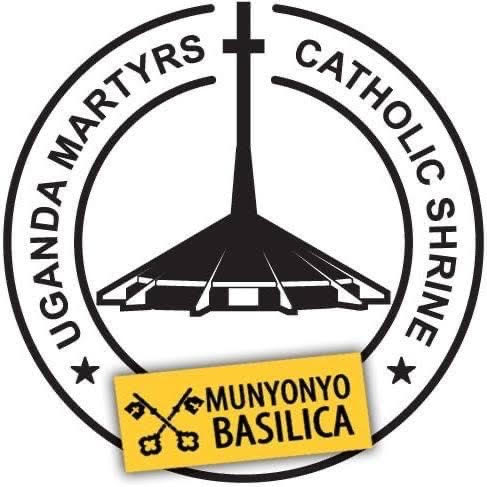Mugagga’s origin and work as a court page
Mugagga’s martyrdom

Mugagga’s origin and work as a court page
Mugagga Lubowa, one of the pages persistently solicited by Mwanga without success, belonged to the Leopard (Ngo) Clan. His father, Mazinga, who later became a Protestant and took the name Isaiah, had three wives. The first, Tigalya, was a great-aunt of Seddu Kakinda, the royal bark-cloth maker. The second wife, Nassubwa, was the mother of the martyr and of four other children.
Mazinga, because of the relationship by mar¬riage, through his first wife, received patronage and assistance from Seddu Kakinda who was also head of the Yam-fruit (Kkobe) Clan. Kakinda established Mazinga and his family upon one of his estates at Jjalambwa, in Mawokota County, where Mugagga was born about the year 1870. His name, which means rich or wealthy, was given to him by his mother in the hope that fortune would look kindly upon him.
Following the common Kiganda practice, Mugagga was sent, as a young boy, to the household of Seddu Kakinda, who brought him up as his own child and presented him at Court when Mwanga be¬came Kabaka. Some witnesses suggest that Mugagga worked in the court of the audience hall, but Desire Wamala asserts positively that he was attached to the private section of the enclosure. This seems to be confirmed by the fact that he was unable to receive any religious instruction by day, and could go to Charles Lwanga at night only. He was thus not publicly known as a Christian, and when, on the fateful morning of 26 May 1886, he ranged himself with Charles and the other Christians, the Chancellor himself tried to save him by stating that Mugagga was not a Christian. The sixteen year old boy would not accept the chance of escape thus offered to him. He had bravely resisted the shameful demands of the Kabaka during his catechumenate and now, fortified by the grace of baptism, received that morning at the hands of Charles Lwanga, was eager to die for his faith.
Although Mugagga’s father became a Protestant, most of his family, including his mother who received baptism and the last sacraments when mortally ill, embraced the faith for which he laid down his life. His adopted father, Seddu Kakinda, also eventually became a Catholic, although at the time of the persecution he was so horrified at the fate of his adopted son that he drove from his home his daughter, Namirembe (later Sister Pelagia), because of her ad¬herence to that religion.
Mugagga’s martyrdom
Being attached to the private section of the King’s enclosure, Mugagga was unable to receive any religious instruction by day, and could go to Charles Lwanga at night only. He was thus not publicly known as a Christian, and when, on the fateful morning of 26 May 1886, he ranged himself with Charles and the other Christians, the Chancellor himself tried to save him by stating that Mugagga was not a Christian.
In his book, The African Holocaust, J.F. Faupel writes, “…the Chancellor, who seems to have entered the royal courtyard about this time, probably to ensure that the Kabaka did not proceed to extreme measures against his son Mwafu, was looking over the group by the fence. Noticing Mugagga Lubowa amongst the Christians, he exclaimed: ‘You there, Mugagga! What are you doing amongst the Christians? Don’t be a fool! When have you learnt to pray? Don’t try to make us believe that you are one of them!’
Mugagga, not to be turned from his purpose, rejected the chance of escape thus offered to him. Stepping forward a pace, he said:
‘Most certainly I am. Only I have been receiving instruction by night, so as to avoid vexing the Kabaka, and being troubled by you. Charles has been my instructor, model and protector, and I wish to die with him for Jesus. I have spoken.’
The sixteen year old boy would not accept the chance of escape thus offered to him. He had bravely resisted the shameful demands of the Kabaka during his catechumenate and now, fortified by the grace of baptism, received that morning at the hands of Charles Lwanga, was eager to die for his faith.
From Munyonyo where the death sentence for all Christians was passed, Mugagga was led together with his fellow Christians to be burnt.
When the men began to spread wood over Mugagga at Namugongo, he cried out, ‘Wait a bit! I must have something to drink first: I am suffocating in this jacket of reeds.’ Mukaajanga, informed of the request, agreed, saying, ‘It is a last request which cannot be refused.’
One of the Christians who were spared from the furnace had this to say according to J.F. Faupel. “Our joyous friend was carried down from the pyre, untied and given two small portions of plantain-wine, for which he gave thanks. Some of the pagans thought within themselves, ‘Here is one, at least, who flinches.’
After the executioners had allowed him time to get rid of his stiff¬ness and recover his breath, they came to Mugagga saying, ‘Now you must be tied up again.’ ‘Wait just a little longer!’ he exclaimed. Then Mukaajanga said to him, ‘I think that the others will be leaving without you.’ ‘In that case,’ he replied, ‘a truce to fooling! Wrap me up quickly in my reeds. I am at your service.’ Then noticing Sebuta, Werabe and myself, below and to one side, he called out, ‘Poor Kamyuka! I am going up to Heaven. We shall be separ¬ated for a time. Good-bye to you all, until we meet again.’
